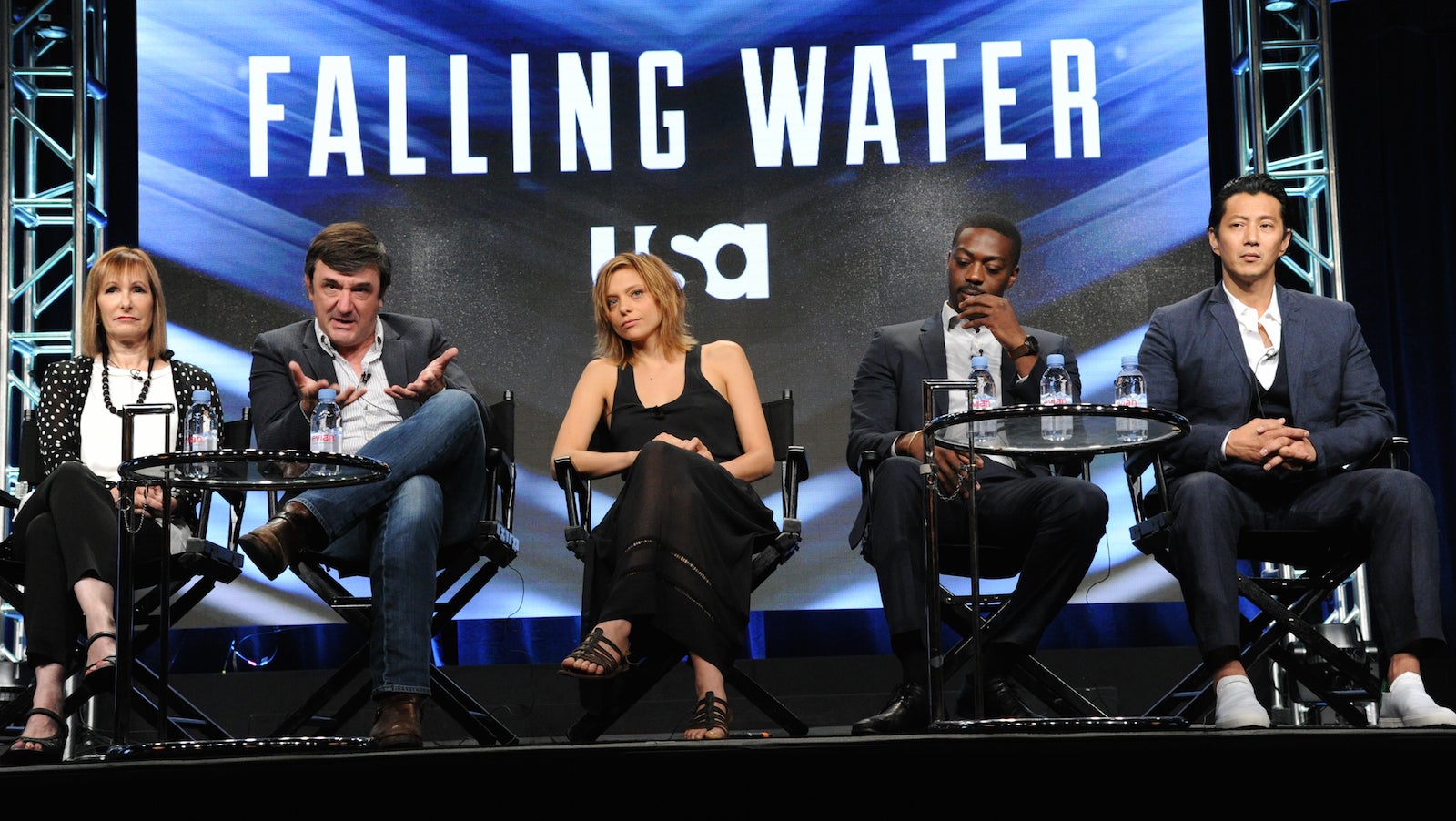How does a TV network follow a surprise hit like “Mr. Robot”? It makes something even weirder
USA Network had already been looking to evolve its programming lineup to keep up with younger audiences who were drawn to more complex stories and characters when it acquired, with little fanfare, a show called Mr. Robot. And the award-winning thriller about a socially inept computer engineer turned vigilante hacker, has gone on to be a ratings and cultural hit.


USA Network had already been looking to evolve its programming lineup to keep up with younger audiences who were drawn to more complex stories and characters when it acquired, with little fanfare, a show called Mr. Robot. And the award-winning thriller about a socially inept computer engineer turned vigilante hacker, has gone on to be a ratings and cultural hit.
“When Mr. Robot presented itself, the development and success of that helped us crystalize for ourselves on how we wanted to build on it,” said Alexandra Shapiro, executive vice president of marketing and digital for USA Network. The characters in Mr. Robot were darker and more complex, as was the world they lived it. USA Network president Chris McCumber refers to these characters as “rebels” and “renegades.”
Mr. Robot brought new, younger, more diverse audiences to the network, Shapiro said. And it became the canon for what a new USA show should look like. The network—with its new tagline of “we the bold“—is trying to build on the momentum of its breakout hit with an ambitious new slate of fall dramas that highlight complex characters and grittier worlds rather than its previous kinds of hits—light-hearted shows like Suits and White Collar.
In June, USA debuted the new series Queen of the South, about a woman in charge of a Texas-based drug cartel. It didn’t quite match the audience of Mr. Robot, but averaged a solid 1.2 million live-plus-same-day viewers during the first season—200,000 viewers shy of its predecessor’s season one average.
The latest series in the lineup, Falling Water, premieres tonight (Oct. 13).
Not to be confused with Frank Lloyd Wright’s architectural feat, Falling Water takes the premise that dreams are ”tiles in a mosaic” that represents a shared dream the world is having—and that those dreams can be accessed and manipulated, showrunner Blake Masters told Quartz. The science-fiction series follows three strangers whose dreams intersect: a woman who swears she gave birth to a child who doesn’t exist, a man who dreams of a woman in red, and a cop whose mother is catatonic.
“Mr. Robot is a lightning-in-a-bottle show,” said Masters, the showrunner for Falling Water. “There are certain shows that arrive in the marketplace at the perfect time in the perfect way and that’s not something you can pre-plan.”
Falling Water, to be followed next month by Shooter, similarly echoes the characteristics of Mr. Robot in that it challenges viewer’s perceptions of the world they’re watching. And Masters knows the show’s performance will undoubtedly be compared to its trailblazing predecessor. “Mr. Robot is a giant snowplow that we get to trail behind,” said Masters. “They pushed the boundaries on USA, so that USA was really embracing the ways that we wanted to push the boundaries.”
Masters believes the time is now ripe for a cerebral character-driven drama like Falling Waters as well. When he first wrote the pilot with the late Henry Bromell back in 2008, Masters said TV was at the peak of what he called gritty, early-1970s-style cinéma-vérité shows. Audiences were flocking to shows like The Sopranos, Mad Men and Breaking Bad, which centered on anti-heroes who were firmly grounded in reality.
The next evolution of that, he says, is bringing those same character-driven stories into a heightened world, as exemplified by shows like Mr. Robot and HBO’s Game of Thrones.
But, ahead of its TV debut, it’s clear that Falling Water is not Mr. Robot or Game of Thrones, by any stretch of the imagination. The show’s pilot was released on USA’s website and on demand before debuting on TV, as Mr. Robot was. It racked up “hundreds of thousands of views” since its release on Sept. 21, according to Shapiro. But that’s still far from the staggering three million views Mr. Robot garnered before its TV debut.
Falling Water also hasn’t met the same critical acclaim and buzz that got Mr. Robot picked up for a second season before the first episode premiered live. Masters said he’s not focused on ratings and will be happy if enough people embrace the world he and Bromell created.
The network, meanwhile, will certainly be looking at viewership to determine whether Falling Water gets renewed for a second season. But USA’s Shapiro said it’s not the network’s only measure of a show’s success. As other US cable networks have done, USA will also consider what fans and critics think as well as the show’s longterm potential.
“We’re in the business of building franchises that have revenue potential in their purest form,” said Shapiro, which “in our case tends to be the one-hour scripted drama.”
USA has been promoting the show by trying to tap into people’s fascination and curiosity about the dream world. It commissioned a study on dreams, and aligned itself with sleep expert and neuroscientist Moran Cerf to show that the concept of dream hacking explored in the show isn’t as farfetched as it seems. It also has a marketing campaign to introduce the concept and characters.
Falling Water is visually stunning to watch, but the pilot is difficult to follow—and not always in a good way. Masters said the machinations behind the dream world will be revealed by the end of the first 10-episode season. We’ll see if viewers stick around to find out.